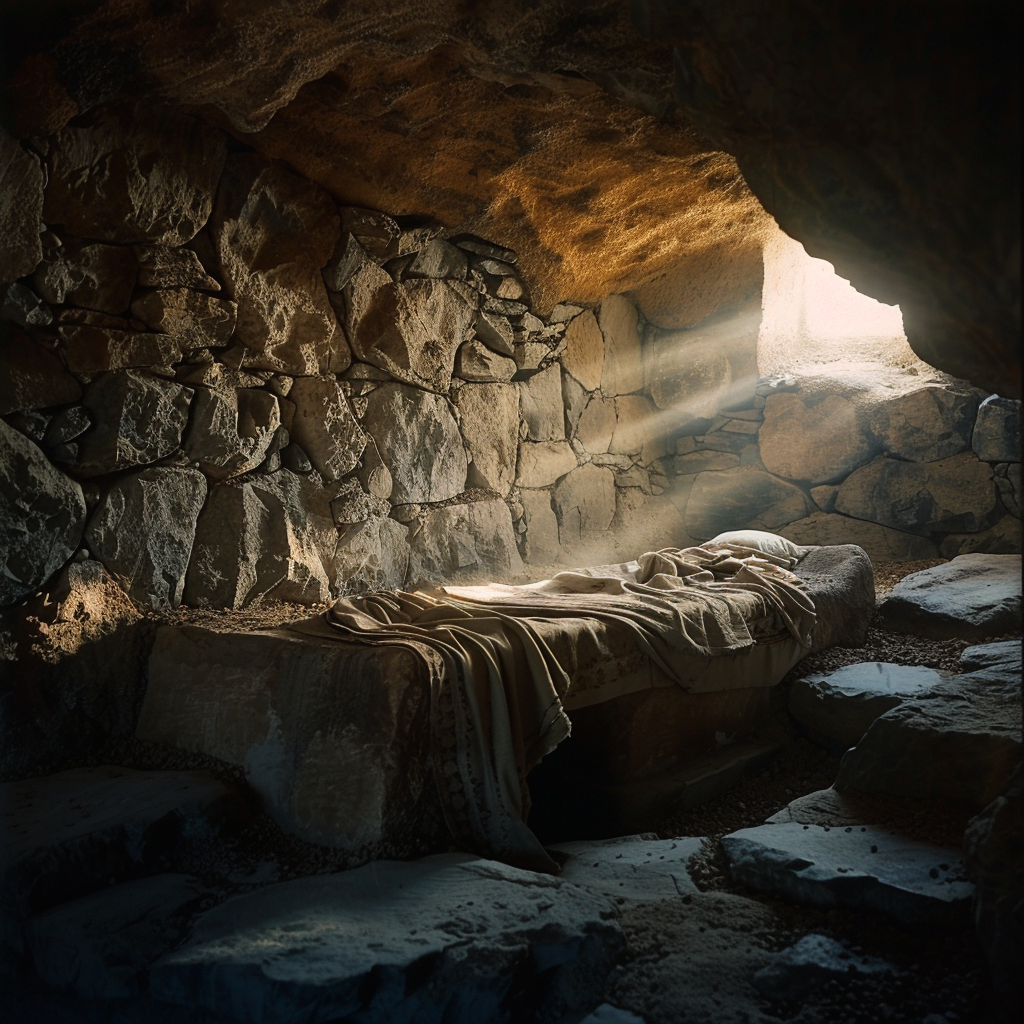Leviticus Chapters 24-27
Land and Banking Laws; Blessings or Curses
September 6-8 of 2021 is the Jewish holy day of Rosh Hashanah, or Feast of Trumpets, which we discussed in our last lesson. It is the Jewish New Year (one of several) which begins a ten-day period of self-examination and repentance in preparation for Yom Kippur (Sept. 15-16), or the Day of Atonement.
You can watch a video where Zola Levitt explains these holy days here:
In this lesson we will conclude our overview of the Book of Leviticus.
Chapter 24:1-9 gives the instruction on the processing of the olive oil that would be used for the lamp in the tabernacle. It also describes the twelve loafs of bread which represented an offering or gift to God from the twelve tribes of Israel. The bread would later be eaten by the priests. No, they didn’t steal the bread. Perhaps God did what we all do when we don’t want a gift given to us. He regifted it to the priests. Perhaps God would have preferred donuts or cupcakes.
As difficult as it might be to believe, there was sometimes conflict between the Israelite parents and their children. Lev. 24:10 tells of the son of an Israelite mother and an Egyptian father who got into a conflict and during it, the young man blasphemed the name of God.
What is blasphemy? It’s showing great disrespect for God. It is something that can tear a community apart. If one member of the community was allowed to revile God or his appointed leaders, the whole community would come to think that it is acceptable, and this would lead others to do the same thing, putting the entire nation at risk.
We don’t know exactly what this person did to blaspheme God or whether it was his first offense. The frustrated parents hauled him off to Moses to see what should be done with him. I’m assuming that this son was an adult, responsible for his actions. Moses was told by God to take this man outside the camp and stone him to death. In many cases where the death penalty could be imposed, the person could escape the death penalty by paying a fine. Deut. 35:31, “Do not accept a ransom for the life of a murderer, who deserves to die. He must surely be put to death.” But in this case, the penalty of stoning was carried out. Verse 23, “Then Moses spoke to the Israelites, and they took the blasphemer outside the camp and stoned him.”
Why would there be such a harsh penalty for this offense? In Acts 5 there is the story of Ananias and Sapphira, who sold a piece of property and gave some of the proceeds from the sale to the Apostles, claiming that they had given all of it to them.
Verse 3, “Ananias, how is it that Satan has so filled your heart that you lied to the Holy Spirit and have kept for yourself some of the money you received for the land? . . . You have not lied to men but to God. When Ananias heard this, he fell down and died.”
It appears to me that there are times of transition when God must make an example of someone who is disobedient. In some cases, they are initiating a new form of worship. Nadab and Abihu were stricken dead in Lev. 10:2 for offering unauthorized fire.
In another case the Israelites had a new leader when Joshua succeeded Moses. Joshua 7:25 Achan was killed for keeping valuable items taken in battle after being commanded to destroy them. In 2 Sam 6:7 Uzzah disobeyed God when he touched the ark.
Leviticus goes on to say that if someone commits murder, he must be put to death. Lev. 24:21, “Whoever kills an animal must make restitution, but whoever kills a man must be put to death.”
The penalty for killing an animal is not the same as killing a person. Some animal rights people believe that animals deserve the same rights as a human. Human life, some believe, is no more valuable than that of an animal. I wonder if a fire fighter would he be as willing to risk his life to save a pet as to save a child? Animals are valuable and are to be treated humanely, but they are not created in the image of God and not to be valued or protected to the same degree as a human being. And the penalty for killing an innocent person is not the same as killing an animal.
Lev. 25, The Sabbath Year
There are a few Christian churches who observe the Holy Days and the Sabbath (7th day) mentioned in Lev. 23, but I don’t know any who follow the Sabbath Year mentioned in chapter 25. Lev. 25:2, “the land itself MUST observe a sabbath to the Lord. For six years sow your fields, and for six years prune your vineyards and gather your crops. But in the seventh year the land is to have a sabbath of rest.”
Not only is there a sabbath for the land, but every 50 years, all land that you may have purchased, goes back to its original owner. So, a land purchase was not a permanent purchase, more like a lease that ended on the Year of Jubilee. If you “purchased” a piece of land five years before the Year of Jubilee, you only signed a five-year lease for the land. One commentary said that it is not known if this was ever practiced. There is no mention of the jubilee in biblical history.
The land is not owned by the Israelites, it is owned by God (verse 23) and the Israelites are only caretakers. The Sabbath for the land encourages the people to trust in God for the sustenance. God promised that He would bless them in the sixth year with a harvest that would carry them through the Sabbath year. Lev. 25:20, “You may ask, ‘What will we eat in the seventh year if we do not plant or harvest our crops? I will send you such a blessing in the sixth year that the land will yield enough for three years.” You’d better plan on hiring extra farm workers on that sixth year.
Commentators suggest that this Jubilee Land Policy would also prevent a small number of people ending up owning a large proportion of the land. This could lead to a huge gap in wealth with the few being very wealthy and the majority struggling to feed their families.
There are a few more rules with regards to buying and selling of real estate.
Lev. 25:25, “If one of your countrymen becomes poor, and sells some of his property, his nearest relative is to come and redeem what his countryman has sold.” Again, the land should be kept within the family or tribe. No foreigners can come and buy up land in Israel.
Verse 35, “if one of your countrymen becomes poor, do not take interest of any kind from him.”
In Israel, if you were poor, your countrymen should do what they can to help you get out of poverty. Money could be borrowed, but it was only to help someone get out of poverty. To charge interest would just make it more difficult for them to get back on their feet financially. The purpose of loaning money was to help a family member, not to make a profit off him. Today some low-income people resort to getting a short-term loan and have to pay a very high interest rate. This can quickly put them even deeper in debt.
Lev. 25:39, “If one of your country men becomes poor among you and sells himself to you, do not make him work as a slave. He is to be treated as a hired worker or temporary resident among you.”
I Tim. 5:8 says, “Anyone who does not provide for their relatives, and especially for their own household, has denied the faith and is worse than an unbeliever.”
Lev. 25:44, “Your male and female slaves are to come from the nations around you; from them you may buy slaves.” These people were those who were living in the land when the Israelites arrived. They were to have been driven out of the land or killed. Making them slaves was a more humane option. You can imagine when Israel had to go to war, afterwards there would be civilians who survived but lost their family members who provided for their well-being. These would become servants or slaves.
Col. 4:1 says, “Masters, provide your slaves with what is right and fair, because you know that you also have a Master in heaven.”
An African commentary says, “Human beings have value, no matter their ethnicity or economic and social status. As followers of God, we must extend the kindness and mercy we show our families to the poor people who live in our villages and cities. When we do so, we show our love for God and act as his ambassadors.”
All the rules for the new nation of Israel have been pretty much given, now in chapter 26 there is the encouragement for the Israelites to obey them. God promised them rewards for obedience and punishment for disobedience.
Lev. 26:3, 6, 9 “If you follow my decrees and are careful to obey my commands, I will send you rain in its season. I will grant peace in the land. I will look on you with favor and make you fruitful and increase your numbers.”
That sounds pretty good. But verses 14-33 say, “But if you will not listen to me and carry our all these commands. I will bring upon you sudden terror, wasting diseases and fever. You will plant seed in vain, because your enemies will eat it. I will set my face against you so that you will be defeated by your enemies. I will multiply your afflictions. I will bring a sword upon you. I will send a plague among you. You will eat, but not be satisfied. You will eat the flesh of your sons and the flesh of your daughters. I will lay waste the land. I will scatter you among the nations and will draw out my sword and pursue you. You will parish among the nations.”
Can you imagine the looks on their faces when they heard these threats?

Lev. 26:44, “Yet in spite of this, when they are in the land of their enemies, I will not reject them or abhor them so as to destroy them completely, breaking my covenant with them.”
In spite of their disobedience and need for punishment, the Israelites are still His chosen people, and the covenant will remain intact. Even after rejecting the Messiah and his offer of the Kingdom of God, He is not done with the Jews. Rom. 11:1-5, “I ask then: Did God reject his people? By no means!” V.2, “God did not reject his people, whom he foreknew.” V.11, “Rather, because of their transgression, salvation has come to the Gentiles to make Israel envious.” V.17, “and you, though a wild olive shoot, have been grafted in among the others and now share in the nourishing sap from the olive root . . . You do not support the root, but the root supports you.” V.23, “And if they do not persist in unbelief, they will be grafted in, for God is able to graft them in again. “V.25, “Israel has experienced a hardening in part until the full number of the Gentiles has come in. And so all Israel will be saved.” V.29 “For God’s gifts and his call are irrevocable.”
Lev. 27, the final chapter in this book deals with two subjects, redeeming what you promised to God and tithing.
A commentary says this about verses 1-29, “It is difficult to understand this section fully because we know so little about the details of dedicating things to the Lord in ancient Israel.” It goes on to say, “Then comes an enigmatic paragraph on devoted things and people. These are apparently the spoils of certain types of war that belong absolutely to the Lord.”
I’ll let you read these verses and see if you can clarify what scholars are puzzled about.
Lev. 27:30 deals with the tithe, or tenth of everything from the land. “A tithe of everything from the land, whether grain from the soil or fruit from the trees, belongs to the Lord; it is holy to the Lord. If a man redeems any of his tithe, he must add a fifth of the value to it.”
This general or first tithe was to be paid to the Levites (Num. 18:21) to compensate them for the fact that they didn’t inherit land and pay them for their services to the community. They were the ones who worked on their behalf in the temple. The Levites, in turn gave a tenth of what they received to the priests (Num. 18:26). If the Israelites failed to do this, they were robbing God. Mal. 3:8 says, “Will a man rob God? Yet you rob me. in tithes and offerings.” If a pastor uses this passage to coerce church members to tithe, he is robbing the members because he has no right to impose an Old Covenant Law, given to the Israelites, onto the church members. The Christian is not an Israelite, and the pastor is not a Levite.
Have you ever before read through the Book of Leviticus? Was it as intimidating as you thought it would be?
What can we take away from this book? God is Holy and he wants us to be Holy, also. We are ambassadors for Christ. II Cor 5:20, “We are therefore Christ's ambassadors, as though God were making his appeal through us. We implore you on Christ's behalf: Be reconciled to God.” Our lives should reflect his life. God doesn’t want us to be like the world. Rom 12: 1 says, “Therefore, I urge you, brothers and sisters, in view of God’s mercy, to offer your bodies as a living sacrifice, holy and pleasing to God—this is your true and proper worship. Do not conform to the pattern of this world but be transformed by the renewing of your mind. Then you will be able to test and approve what God’s will is—his good, pleasing and perfect will.”
Recent Articles

Share this:
Start Here...
Why Study the Bible?
Don’t many consider the Bible to be just a book of myths? Why do we read the Bible rather than the sacred literature of other religions?
How do we know that it is from God? How do we know that what we have today is an accurate translation from the original? Is the Bible complete or have there been some books that have been lost?
We should be able to answer these questions, and there are answers! So start here!
Answers to Common Bible Questions



Questions?
Send us your questions or comments. We respond to every message.
About us
Encouraging Everyone to Study the Word of God and do the Work of God.
Useful Links
Contact info
Join our family
Contact Us
We will get back to you as soon as possible
Please try again later
The Berean Bible Ministry
This web site is dedicated to the study of the Bible, with no advertising and no popups. It is supported by our Bible study group.




